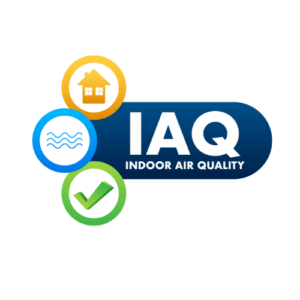Indoor Air Quality Experts in Las Vegas

Looking to Breathe easy with our local indoor air-quality testing & AC units Las Vegas!
Maintaining high Indoor Air Las Vegas and ensuring the efficient operation of Las Vegas AC units is essential for the health and comfort of building occupants. HVAC systems play a crucial role in this process, as they help filter out contaminants like dust, allergens, mold spores, and volatile organic compounds, significantly improving IAQ.
Regular maintenance of HVAC components, including air filters and coils, is vital for optimal performance. Neglecting these tasks can lead to reduced efficiency and compromised air quality. Therefore, establishing a routine maintenance schedule is essential.
Additionally, investing in high-quality air filtration systems, humidifiers, and ventilation solutions can further enhance air quality. By prioritizing these aspects in HVAC design and maintenance, building owners can create a healthier, more comfortable environment that reduces the risk of respiratory issues and promotes overall well-being for all occupants.
702-516-9999
Pure Air, Pure Comfort: Your HVAC IAQ & Las Vegas AC Units Experts!
If you’re concerned about the air you breathe indoors, searching for “indoor air quality testing near me” can help you find local services that specialize in assessing air quality in your home or office. These professionals use advanced equipment to measure pollutants, allergens, and other harmful substances that may affect your health and comfort. By identifying issues such as mold, VOCs, or carbon monoxide, they can provide tailored solutions to improve the air quality in your space. Prioritizing IAQ testing not only enhances your living environment but also promotes better overall well-being for you and your family.

AC replacement Las Vegas! Call Us for a Free Estimate.
Best HVAC contractors Las Vegas & IAQ monitor.
Presently if you’re in need of AC replacement in Las Vegas, it’s essential to choose a reliable service provider.
Therefore with the city’s extreme heat, upgrading to a high-efficiency air conditioning system can significantly reduce energy costs while improving comfort. Don’t wait until your old unit fails; consider an upgrade today for a more comfortable and energy-efficient living environment.
As a result your old unit fails; consider an upgrade today for a more comfortable and energy-efficient living environment.
For Example Poor IAQ can be caused by a variety of factors, including inadequate ventilation, high humidity levels, indoor pollutants such as dust, pet dander, mold, and volatile organic compounds.
Poor indoor air-quality can lead to a range of health issues, including respiratory problems, allergies, asthma exacerbation, headaches, fatigue, and other symptoms. Long-term exposure to indoor air pollutants can also increase the risk of developing chronic health conditions.
Improving IAQ can be achieved by implementing strategies such as increasing ventilation, using air purifiers, maintaining a clean and dust-free environment, controlling humidity levels, and eliminating sources of indoor pollutants.
It is recommended to change air filters in HVAC systems every 1-3 months, depending on factors such as filter type, household size, pets, and indoor air quality concerns. Regular filter changes help prevent the buildup of dust and allergens in the air.
Indoor air quality testing can be conducted by professionals to assess levels of pollutants such as mold, allergens, VOCs, and radon. These tests can help identify specific indoor air quality issues and inform strategies for improvement.
HVAC systems play a significant role in IAQ by circulating and filtering air throughout a building. Proper maintenance of HVAC systems, including regular filter changes and professional inspections, can help improve indoor air quality by reducing pollutants and ensuring efficient operation.
By all means Improving indoor-air quality through Do-It-Yourself (DIY) methods is possible with some simple yet effective strategies. Here are some DIY tips to enhance indoor air quality:
By understanding the factors influencing IAQ and implementing appropriate strategies, individuals can create healthier indoor environments for themselves and their families. Regular maintenance of HVAC systems and proactive measures to reduce indoor pollutants are key steps in ensuring good indoor air quality.
1. First Regularly clean and dust your home to reduce allergens. Focus on vacuuming carpets, wiping surfaces, and cleaning ducts.
2. Next Proper Ventilation: Ensure proper ventilation in your home by opening windows.
3. Houseplants: Incorporate houseplants known for their air-purifying qualities.
4. Such as Natural Cleaning Products: Opt for natural or eco-friendly cleaning products to reduce exposure to harsh chemicals and volatile organic compounds (VOCs) that can affect indoor-air quality.
5. Humidity Control: Maintain proper humidity levels in your home to prevent mold growth and reduce the risk of respiratory issues. Use a dehumidifier in damp areas and ensure good ventilation to control humidity.
6. Air Purifiers: Consider using portable air purifiers with HEPA filters to remove airborne particles.
7. Also Avoid Smoking Indoors: Avoid smoking indoors to prevent tobacco smoke from contaminating indoor air. Designate smoking areas outside the home to minimize exposure to secondhand smoke.
8. Ultimately Regularly Change Air Filters: Regularly change the air filters in your HVAC system to ensure proper air circulation and filtration. This helps trap dust, pollen, and other particles, improving indoor-air quality.
Conclusion:
Lastly by incorporating these DIY indoor-air quality tips into your routine, you can create a cleaner, healthier indoor environment for you and your family. Remember that maintaining good indoor-air quality is a continuous process that requires attention to various factors influencing air quality in your home.
Finally here are some Resources:








